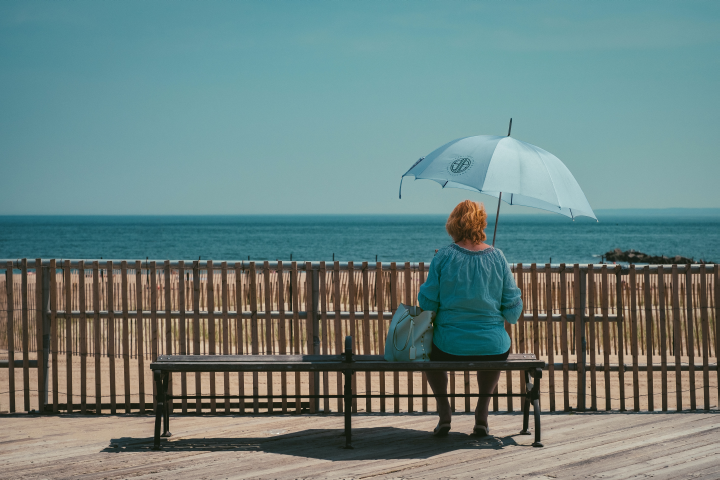How Seniors Can Keep Cool This Summer

According to the Centers for Disease Control and Prevention (CDC), extreme heat kills more people each year than hurricanes, lightning, tornadoes, and floods combined.
Guess who the main victims are? The elderly and those with chronic medical conditions – exactly the kinds of people who receive services from home care aides. More than half of people who die from heat-related illnesses are over 50 years old. The problem will be even worse this summer as many seniors shelter from the coronavirus epidemic in their houses or apartments, which may not have adequate cooling systems.
For a senior stuck in his or her home, it can be easy to not realize that the heat inside is growing to a dangerous level. Someone – a family member, friend, or another caregiver, or a home care aide – may need to recognize the problem and take preventive measures right away.
Information about heat-related illnesses is readily available. Take a look at these articles by the American Red Cross and the National Institute on Aging, and you’ll have most of the facts you need. What we’re concerned about here is what home care aides can – and should – do to protect their elderly clients from excessive heat.
If you are a home care aide, your basic job is to remind clients to stay hydrated, monitor for signs of heat-related illness, provide safety tips, and report health issues to your agency, other caregivers, and/or doctors if needed.
Symptoms to watch for include thirstiness, dizziness, weakness, nausea, and muscle cramps. Some people suffering from the heat may sweat excessively, while others may not sweat at all despite a high temperature.
Here are some other ways to help:
- If a home or apartment does not have fans or air conditioning, advise the client to keep windows covered during the hottest part of the day. Also recommend that the client go outside before 10:00 am and after 6:00 pm.
- Advise the client to limit use of the oven, take frequent cool showers or baths, and avoid use of alcohol or caffeine. Also recommend that the client wear loose-fitting, lightweight, light-colored clothing.
- Encourage the client to eat light, cold meals like chicken or pasta instead of heavy, hot dishes like pot roast.
- Offer plenty of drinks when you visit the client. Also make sure that the client has cool treats available that are low in sugar and have high water content. Sugar-free popsicles are a classic. Fruits and vegetables that are high in water, such as watermelon, cucumbers, celery, strawberries, and bell peppers, are also an easy way to increase fluid intake.
- Advise the client to place a cool washcloth on the back of the neck to cool down, and keep a pan of water close by to re-cool the towel.
- Offer to move fans to better locations and/or adjust air conditioner settings.
- Be on the lookout for heat edema in the client – a swelling of feet and ankles.
- Keep in mind that if the client takes a beta blocker for heart problems, he or she may be more susceptible to heat exhaustion than other elderly adults.
- If other caregivers are involved, encourage them to check on the client frequently during the summer. If the client does not have an air conditioner, recommend that one be acquired. A generator can also be installed to avoid power outages.
The bottom line: Heat is a real danger, and we all should respect it. For example, the National Library of Medicine reports that the August 2003 heat wave in Europe resulted in as many as 70,000 excess deaths, and the 1995 heat wave in Chicago registered an average of 241 excess deaths per day. Of course, home care aides are not solely responsible for protecting clients from heat – but they should do everything they can.